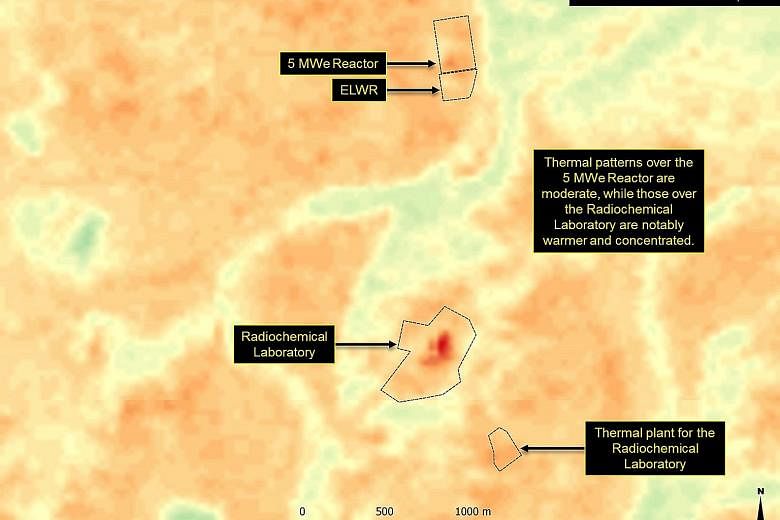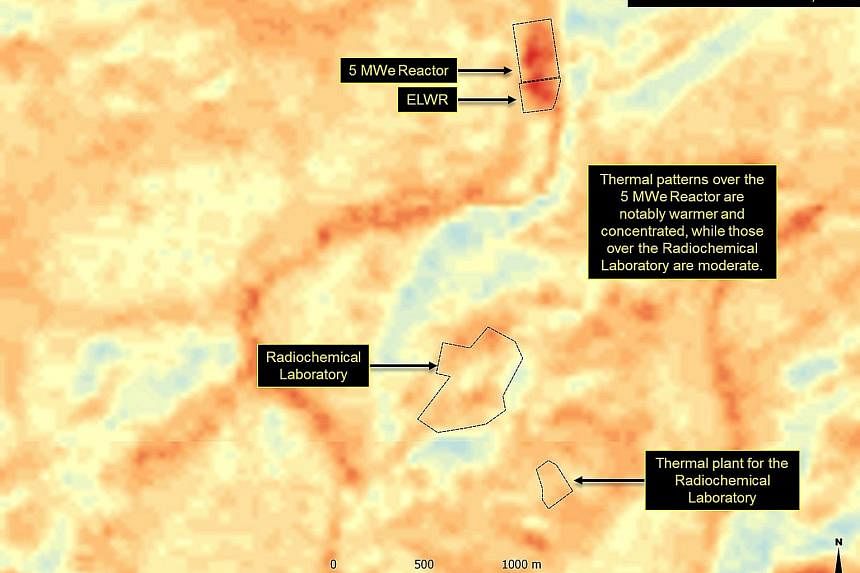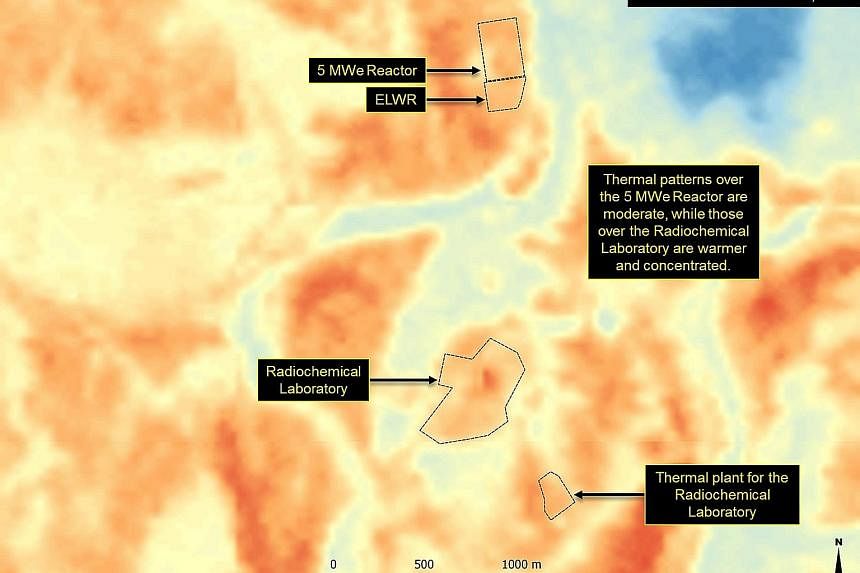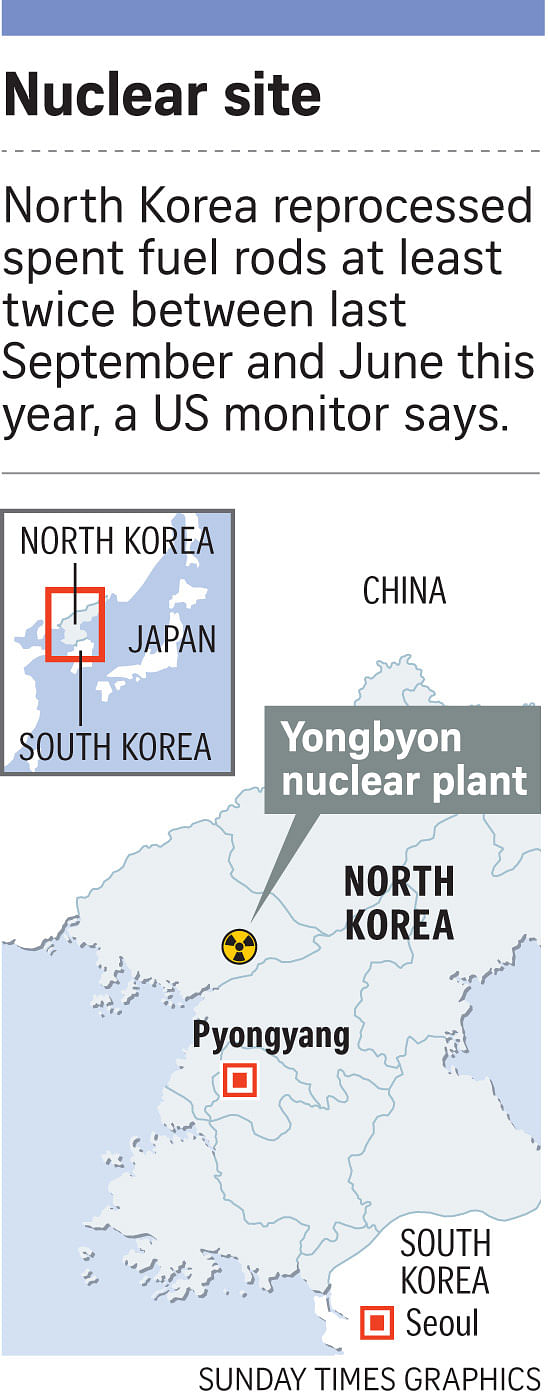SEOUL • New images of North Korea's main nuclear facility show that the isolated regime has apparently produced more plutonium for its nuclear weapons programme than previously thought, a United States monitor said, as tensions soar over Pyongyang's ambitions.
The respected 38 North website, a monitoring project linked to Johns Hopkins University, said on Friday that thermal imagery of the Yongbyon nuclear complex appeared to show that Pyongyang had reprocessed spent fuel rods at least twice between last September and last month. "The radiochemical laboratory operated intermittently and there have apparently been at least two unreported reprocessing campaigns to produce an undetermined amount of plutonium that can further increase North Korea's nuclear weapons stockpile," it said.
North Korea deactivated the Yongbyon reactor in 2007 under an aid-for-disarmament accord, but began renovating it after its third nuclear test in 2013.
Increased thermal activity was also noted at Yongbyon's uranium enrichment facility, but it was unclear whether this indicated a push to increase supplies, possibly for weapons, or if it was part of maintenance operations. The researchers also said analysis of thermal patterns from a probable isotope/tritium production facility at the site suggested that the plant was likely not producing tritium.
North Korea manufactures atomic bombs using uranium and plutonium, and has conducted five underground nuclear tests since 2006. Officials and experts say it could test a sixth at any time, despite US-led global efforts to curb its programme.
A report by US-based nuclear expert Siegfried Hecker published by 38 North last September estimated North Korea had stockpiles of 32kg to 54kg of plutonium, enough for six to eight bombs.
The North also carried out its first successful test of an intercontinental ballistic missile this month.
North Korea's Foreign Ministry spokesman said on Friday that "the resounding success" of the test demonstrated its ability to "annihilate the US by a single blow to the very heart of its mainland, in case it fails to act with discretion".
-
Uranium, plutonium and tritium explained
-
URANIUM
Uranium occurs naturally in the earth's crust and is enriched into fuel for nuclear reactors. Highly enriched uranium needed for bomb- making is expensive and hard to create - an obstacle for countries wishing to make nuclear weapons.
PLUTONIUM
Plutonium is found only in trace amounts in nature but is a by-product of the nuclear power industry.
Spent fuel taken out of reactors can be reprocessed to produce weapons-grade plutonium.
Bombs made from this plutonium are more powerful than those made from weapons-grade uranium.
The nuclear bomb that was dropped over the Japanese city of Nagasaki at the end of World War II, killing tens of thousands of people, was filled with plutonium.
TRITIUM
Tritium is a key component used for making sophisticated thermonuclear weapons, such as a hydrogen bomb that the North Korean government claimed to have tested in January last year.
North Korea, which says it needs nuclear weapons to defend itself, is subject to multiple sets of United Nations sanctions over its weapons programmes. The latest launch triggered a new round of condemnation and anger, with the US and its allies seeking toughened measures at the Security Council.
AGENCE FRANCE-PRESSE, REUTERS




